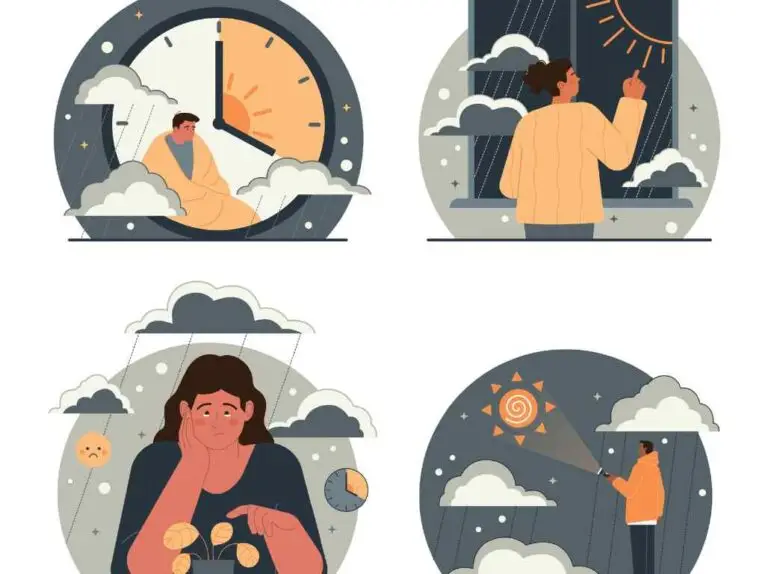Shedding Light on Coping with Seasonal Affective Disorder (SAD)
Seasonal affective disorder is often called winter depression. But people do get depressed in summer as well. As winter’s grip tightens across much of the United States, many people find themselves battling more than just chilly temperatures and snow-covered landscapes. For some, the change in seasons brings about a noticeable shift in mood and energy levels, often accompanied by feelings of lethargy, sadness, and even hopelessness. This phenomenon is known as Seasonal Affective Disorder (SAD), a type of depression that typically occurs during the fall and winter months.
Light Helps To Combat Seasonal Affective Disorder
SAD can be a challenging condition to cope with, as it can significantly impact one’s quality of life and ability to function normally. However, there are various strategies and coping mechanisms that individuals can employ to manage their symptoms and reclaim a sense of well-being, even amidst the darkest days of winter.
One of the most effective treatments for SAD is light therapy. Light therapy involves exposing oneself to bright artificial light, typically from a specialized light box, for a designated period each day. This simulated sunlight helps regulate the body’s internal clock and can alleviate symptoms of depression associated with SAD. For those struggling with winter blues, incorporating light therapy into their daily routine can provide a much-needed boost to mood and energy levels.
Seasonal Affective Disorder: Healthy Lifestyle Tips
In addition to light therapy, maintaining a healthy lifestyle is crucial for managing SAD symptoms. This includes regular exercise, which has been shown to reduce feelings of depression and anxiety by releasing endorphins, the body’s natural mood elevators. Even something as simple as taking a brisk walk outdoors during daylight hours can have a positive impact on mood and overall well-being.
Furthermore, paying attention to diet and nutrition can play a significant role in combating SAD. Consuming a balanced diet rich in fruits, vegetables, whole grains, and lean proteins provides essential nutrients that support brain function and mental health. Omega-3 fatty acids, found in fatty fish like salmon and mackerel, have been linked to a lower risk of depression and may help alleviate symptoms of SAD.
Seasonal Affective Disorder: Get Support and Treatment
Social support is another crucial component of coping with SAD. Connecting with friends and loved ones, even virtually, can provide a sense of belonging and reduce feelings of isolation during the winter months. Participating in group activities or seeking out support groups for individuals with SAD can also provide valuable encouragement and understanding from others who are going through similar experiences.
For some individuals, therapy or counseling may be beneficial in managing SAD symptoms. Cognitive-behavioral therapy (CBT) is a particularly effective approach, as it helps individuals identify and challenge negative thought patterns and develop healthier coping mechanisms for dealing with stress and depression.
It’s essential to remember that SAD is a real and treatable condition, and seeking professional help is nothing to be ashamed of. If you or someone you know is struggling with symptoms of SAD, don’t hesitate to reach out to a healthcare provider for support and guidance.
Seasonal Affective Disorder Conclusion
In conclusion, coping with Seasonal Affective Disorder (SAD) requires a multi-faceted approach that addresses both the physical and emotional aspects of the condition. By incorporating light therapy, maintaining a healthy lifestyle, seeking social support, and considering therapy or counseling, individuals can effectively manage their symptoms and reclaim their joy and vitality, even in the darkest days of winter. Remember, brighter days are ahead.
If you or someone you love is struggling with SAD contact Casa Serna to learn more about our programs and how treatment at our women’s residential depression treatment program can help.
More Articles To Read About Health
Get Your Mind Body Link Healthy
10 Tips For Anxiety And Panic Attacks
Dealing With Addiction Issues: Why You Should Go To A Rehab





















